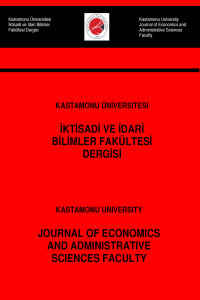Abstract
The field of International Relations which utterly became an academic discipline at the beginning of the 20th century has always been subjected to a matter of debate whether it has scientific and universal theoretical principles in explaining international politics. Neorealism that was first introduced in 1979 by Kenneth N. Waltz has been one of the most leading theories offering law making, positivist and universal accounts for the field of IR among all other theories. However, Neorealism is essentially challenged by one of the particularistic traits of social theory, in this study, that is Western-centrism. This article aims at scrutinizing the Western-centric grounds of Neorealism, through an analysis of ontological and epistemological levels of its making. The Western-centric background will be analyzed at three levels of arguments in Neorealist theory: anarchy and hierarchy; rationalism and empiricism; and normativism.
References
- Acharya, Amitav and Buzan, Barry (2007), “Why is there no non-Western International Relations Theory? An Introduction”, International Relations of the Asia-Pacific, Vol.7, 287-312.
- Baylis, John (2012), “Uluslararası İlişkilerde Güvenlik Kavramı”, Mustafa Aydın, Hans Günter Brauch, Mitat Çelikpala, Ursula Oswald Spring and Necati Polat (eds.), Uluslararasi İlişkilerde Çatışmadan Güvenliğe, İstanbul: İstanbul Bilgi Üniversitesi Yayınları, 153-166. Hafner Press.
- Brown, Chris (2001), “Fog in Channel: Continental IR Theory Isolated (Or: An Essay on the Paradoxes of Diversity and Parochialism in IR Theory)”, Robert M.A. Crawford and Daryl Jarvis (eds.), International Relations Still an American Social Science? Towards Diversity in International Thought, Albany: State University of New York Press, 203-219.
- Brown, Chris (2007), “International Relations as Political Theory”, Tim Dunne, Milja Kurki and Steve Smith (eds.), International Relations Theories, Oxford: Oxford University Press, 34-51.
Abstract
References
- Acharya, Amitav and Buzan, Barry (2007), “Why is there no non-Western International Relations Theory? An Introduction”, International Relations of the Asia-Pacific, Vol.7, 287-312.
- Baylis, John (2012), “Uluslararası İlişkilerde Güvenlik Kavramı”, Mustafa Aydın, Hans Günter Brauch, Mitat Çelikpala, Ursula Oswald Spring and Necati Polat (eds.), Uluslararasi İlişkilerde Çatışmadan Güvenliğe, İstanbul: İstanbul Bilgi Üniversitesi Yayınları, 153-166. Hafner Press.
- Brown, Chris (2001), “Fog in Channel: Continental IR Theory Isolated (Or: An Essay on the Paradoxes of Diversity and Parochialism in IR Theory)”, Robert M.A. Crawford and Daryl Jarvis (eds.), International Relations Still an American Social Science? Towards Diversity in International Thought, Albany: State University of New York Press, 203-219.
- Brown, Chris (2007), “International Relations as Political Theory”, Tim Dunne, Milja Kurki and Steve Smith (eds.), International Relations Theories, Oxford: Oxford University Press, 34-51.
Details
| Journal Section | Issue |
|---|---|
| Authors | |
| Publication Date | April 15, 2015 |
| Submission Date | May 18, 2017 |
| Published in Issue | Year 2015 Volume: 7 Issue: 1 |


